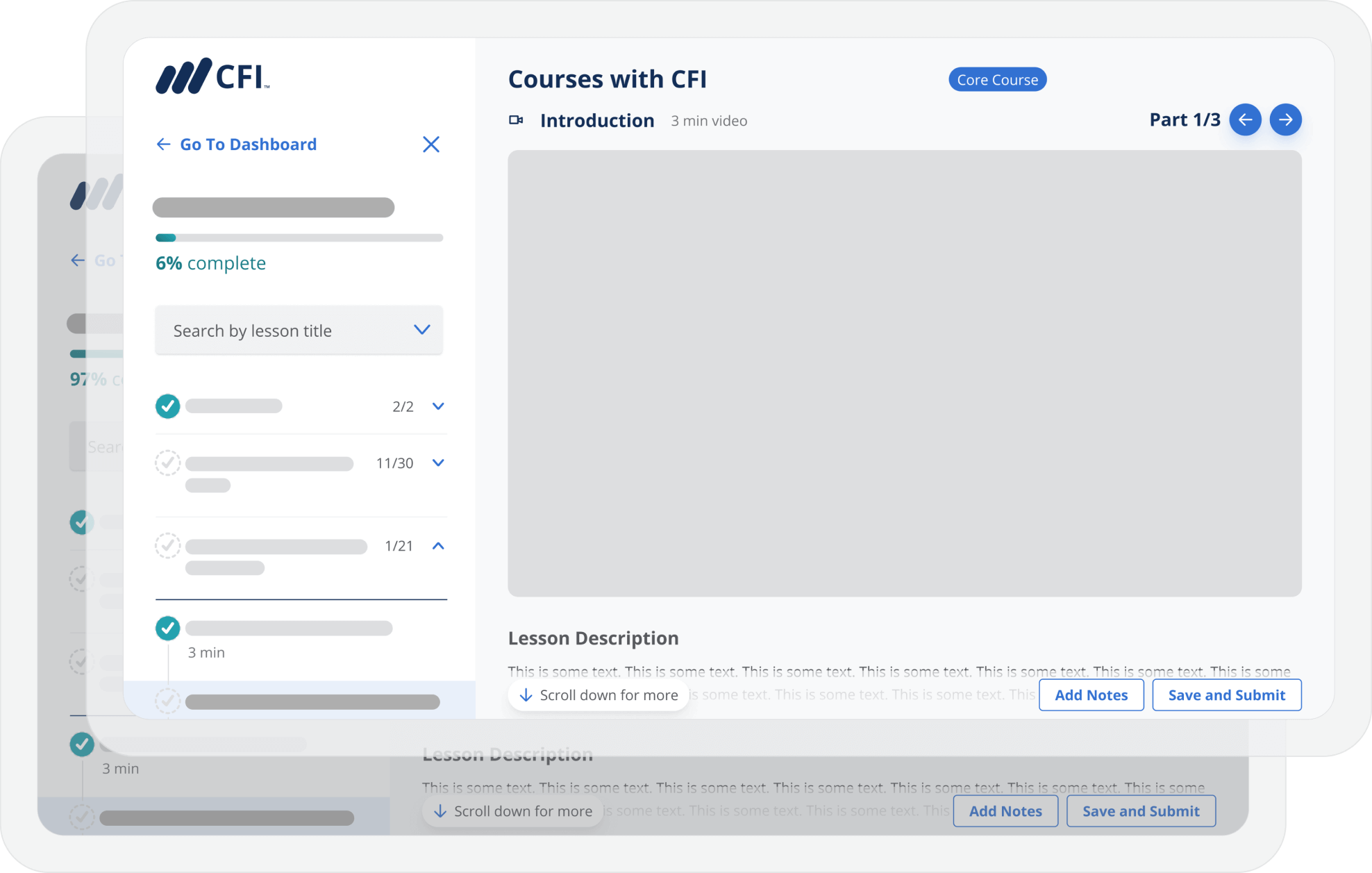Learn SQL with CFI
Topic Overview
5 courses
Consisting of over 360+ lessons
10+ interactive exercises
Learn by doing with guided simulations
Expert instructors
Learn from the very best
New courses monthly
On need-to-know subject matter
Blockchain certificate
To verify your skills
500,000+ 5 star ratings
Best-in-class training, as rated by you
Find the right SQL course
Courses and Case Studies for SQL
Browse all coursesWhy Learn SQL with CFI?
CFI is a leading provider of online financial analyst certification programs and offers solely finance-focused training and development. Each course is designed with the guidance of professional Wall Street trainers who taught new hires at global investment banks for decades.
Our courses combine theory, application, and intuition in innovative, self-paced programs. You can learn at any time, from anywhere, and develop your skills for a future in finance.
Over 75% of CFI learners report improved productivity or competency within weeks.
With our SQL courses, you can discover:
Who should take these courses?
Investment professionals
Management consultants
Financial analysts
Registered Provider: National Association of State Boards of Accountancy
All courses are accredited by the Better Business Bureau (BBB), CPA Institutions in Canada, and the National Association of State Boards of Accountancy (NASBA) in the US. Most courses qualify for verified CPE credits for CPA charter holders.
Courses include video lessons, quizzes, and final assessments.









